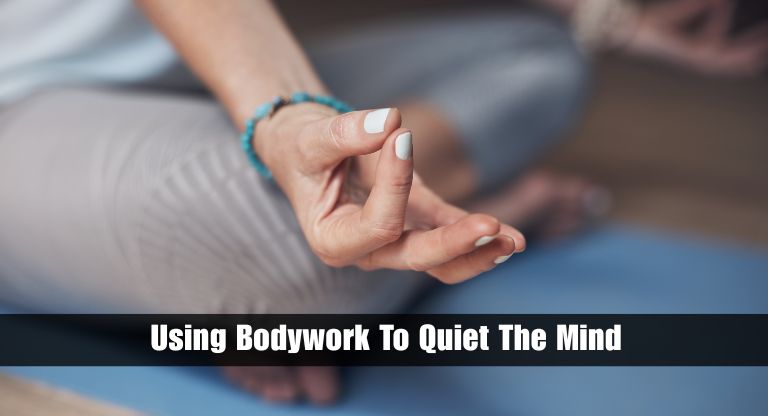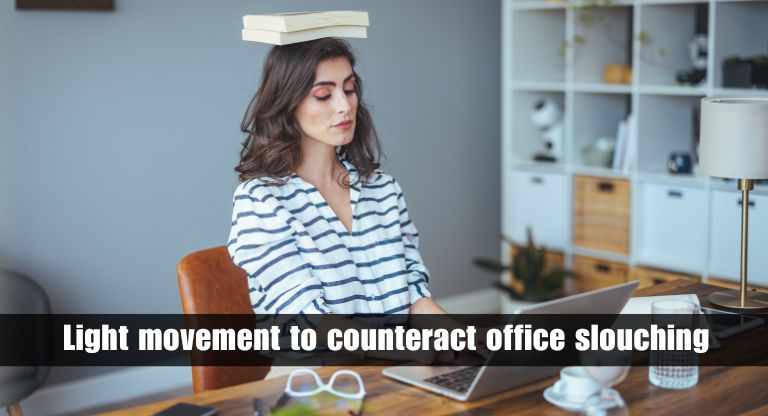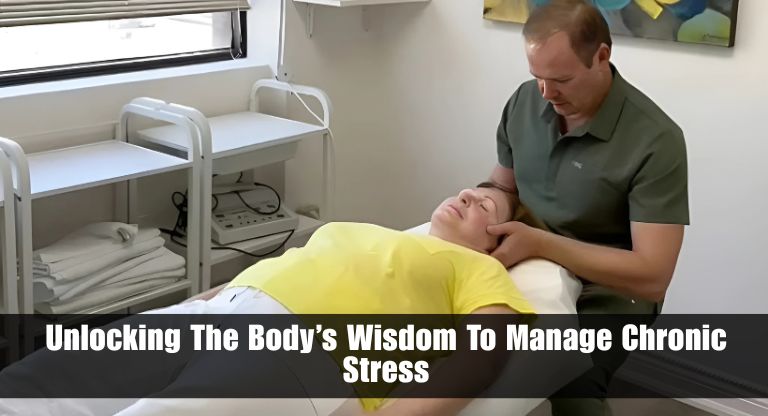Process of receiving short-term disability for anxiety and depression could be difficult, if you already take care of your mental health. Knowing the policies, documents, and rules required helps to straighten the route. Real bodily issues like anxiety and sadness could affect your performing capability. Approaching the operation with the necessary knowledge and help will enable you to realistically advocate for yourself and realize the benefits you require.
For short-term disability approval , you have to prove how your illness affects your everyday activities. You will have to provide the medical records and contact with your insurance company or employer. This article will walk you through all phases of the process from knowledge of qualifying criteria to managing medical providers. Tenacity and careful preparation will enable you to provide a strong case for your claim and concentrate on your recovery free from financial weight.
What is anxiety?
It is a normal response to stress or feared danger. Affected millions of Americans, anxiety disorders are typified by too much worry, restlessness, and physical symptoms include fast heart rate or sweating. Their reasons could be psychological, environmental, or inherited, which complicates treatment of this complicated disorder.
Dealing with the effect of anxiety on your capacity to work depends on awareness of it. Extreme anxiety can impede general productivity, decision-making, and focus. It provides people a chance to seek temporary disability benefits. Arguing for the aid you need starts with realizing the symptoms and getting medical attention.
What Is Depression?
Depression is a mental disease that influences your mood, energy level, capacity for activity; it is not a passing melancholy. Symptoms of depression are tiredness, and a loss of enthusiasm for one’s appreciated hobbies. Several of these symptoms make regular work very impossible.
Those with depression may find that their short-term handicap is just what they need to focus on recovery. A recorded diagnosis and ongoing medical treatment showing the extent of your disease support your benefit claim. Not a show of weakness; depression is a significant illness demanding therapy and attention.
How To File A Claim For Short-Term Disability?
Getting a short-term disability for mental health demands for good evidence. Consult with your therapist or doctor about filing a claim of short term disability.
The information you provide will help your company or insurance provider evaluate your claim. Prepare yourself to review your treatment schedule and realize that your rehabilitation absolutely depends on a break from work. A deep information indicates that mental health problems related to disability compensation are equally real as physical ones.
How to Get Short-Term Disability for Mental Health?
Applying for a short-term disability requires both exact planning and considerable attention to detail. These instructions will enable you to ensure efficient treatment of your claim:
- Tell the agent or your insurance company you want to claim right now.
- Get the relevant claim forms and review their filing regulations.
- See your doctor for a precise diagnosis and a full condition statement.
- Request medical documents containing treatment notes, prescribed medications, and a statement of how your sickness reduces your employment capacity.
- Correct completion of your component of the claim forms will provide all asked information on your employment and condition.
- Make sure your doctor completes the component on the medical certificate totally.
- Send your insurance company or employer the finished papers along with matching medical records.
- Save copies of all you turn in for your records.
- See your insurance agent or company to find the state of your claim.
- To prevent delays respond straight away to any requests for more information.
- Usually, the process takes seven to fourteen days takes before benefits begin.
- Keep an eye or call HR to predict expected return dates and processing times.
- Take a deep survey for timeframe and returns of process.
- It is very important to discuss it with your lawyer or doctor so that they help you to enhance the chances your case.
This process increases the chances of approving your application for a temporary disability.
How Long will It Take to Get Short-Term Disability Benefits?
Your insurer’s processing period and the thoroughness of your application will decide when you should earn short-term disability benefits. Usually, your benefits starting point claim is separated by seven to fourteen days. Ahead of time forwarding the appropriate documentation helps to reduce unnecessary delays.
While you wait, your company or insurance agent reviews your claim to validate your eligibility and medical data. Awards are distributed either a week after depending on approval. Keeping lines of contact with your insurer helps to regulate the running.
What If Your Claim Is Denied?
Do not stop even if your petition for a short-term incapacity is denied. Review the refusal letter first to help you to grasp the underlying causes of the decision. Common reasons are either inadequate documentation or weak medical proof. See your doctor to address any variances and bolster your case.
Challenge the choice by, if needed, gathering more data or consulting lawyers. Many claims are approved after appeal, particularly if you give exact and thorough information. Mostly, overcoming first denial depends on tenacity and meticulous attention to detail.
Does Mental Health Qualify for Short-Term Disability?
If mental health issues like anxiety and depression seriously affect your capacity to work, they really do qualify as temporary impairments. The secret is giving complete medical records linking your health to your job restrictions. Companies and insurance companies know about the effects of mental health problems; the data is unequivocal.
See your doctor to find the degree of your symptoms and how they affect your performance at work. Consistent therapy and open contact with your company or insurer will help you to substantiate your benefit claim.
What Qualifies for Short-Term Disability?
Short-term disability payments address not just physical and psychological problems but also a variety of situations that momentarily keep you from working. Your disease has to be severe enough to influence job performance and supported by medical records to qualify.
One could be qualified from anxiety, sadness, surgery recovery, or other handicap condition. Make sure your doctor notes your diagnosis, course of treatment, and reason you need time off to fully recuperate. Your thesis is more compelling the more precisely your data supports.
How Much Does Short-Term Disability Pay?
Depending on the policy or insurance company your firm uses, short-term disability payments sometimes replace 40–70% of your usual salary. These advantages should enable you to control necessary spending even when you are not able to work.
Knowing the payback time and coverage restrictions of your plan guarantees suitable break planning. See your policy or ask HR to determine your eligibility level and the length of the benefits.
What States Require Short-Term Disability for Employees?
State-by-state variations exist in United States short-term disability insurance criteria. In five states companies offer their workers temporary disability benefits:
1. California
Employers must provide short-term disability insurance via the State Disability Insurance (SDI) scheme run by their state.
2. Hawaii
Employers either through state-approved programs or private insurance have to provide Temporary Disability Insurance (TDI) to qualified workers.
3. New Jersey
The state mandates that employers give Temporary Disability Benefits (TDB) to staff members; these may be managed under either the state plan or an approved private plan.
4. New England
Employers must provide Disability Benefits to employees for off-the-job injuries or diseases including pregnancy-related handicaps.
5. Rhode Island
Driven by employee payroll payments, the state preserves a Temporary Disability Insurance (TDI) program providing benefits to qualified employees.
Regarding eligibility, benefit amounts, and length of time, every one of these states has particular policies. Employers and staff members should become familiar with the criteria of their state to guarantee compliance and grasp the advantages.
Is Short-Term Disability Leave Right for Your Situation?
If your anxiety or depression really affect your capacity to work, your best option could be short-term disability leave. Taking time off to concentrate on your mental health helps in rehabilitation and returns to work in better shape.
See your doctor to review your choices and determine whether a break is needed. Think on the financial fallout and whether your illness qualifies for help. Choosing with great care guarantees that you are choosing the greatest one for your health.
When Might You Consider Short-Term Disability Leave for Mental Health?
Take temporary disability leave if your mental health issue—including anxiety or depression—has expanded to interfere with your daily activities or job performance. Among the symptoms time off could help with are extreme tiredness, trouble focusing, or ongoing depression.
A break lets you concentrate on therapy, drug changes, or other treatments free from the extra weight of work. See your doctor to find out if, considering your circumstances, this is the suitable course of action.
What Options Do You Have for Mental Health Leave?
Apart from temporary disability, other possibilities for mental health leave are paid absence granted by corporations or the Family and Medical Leave Act ( FMLA). FMLA protects your work and lets up to 12 weeks of unpaid absence, even if it does not bring back lost money.
Others even provide mental health days or flexible working schedules. Review the policies of your firm to identify what is readily available; then, select the one most likely to assist your road of recovery.
When to Seek Short-Term Disability Benefits?
If your mental health issue keeps you from doing necessary job tasks, request temporary disability pay. Early signs could be overly tired, trouble concentration, or worsening problems even with treatment.
See a doctor on your matter and compile required records. Starting the process early rather than later guarantees that, should most need develop, you will get quick help.
Do Anxiety and Depression Qualify for Short-Term Disability?
Indeed, if anxiety and depression significantly affect your capacity to work, they can qualify as short-term disabilities. Given enough supporting medical information, these mental health issues are acknowledged as legitimate causes for disability leave. Companies and insurance firms know that untreated anxiety and depression can have negative effects on both personal and professional life.
You must show how your illness keeps you from performing expected job responsibilities to qualify. This calls for a thorough diagnosis from a qualified mental health practitioner, records of treatment—such as therapy or medication—and an open discussion of how your problems affect your job. Typical symptoms are emotional instability, trouble focusing, and ongoing tiredness. These disorders give a good basis for your claim when correctly recorded.
Is Anxiety and Depression a Recognized Disability?
Under some laws and insurance plans used in the United States, anxiety and depression are acknowledged as impairments. The Americans with Disabilities Act (ADA) addresses circumstances whereby a mental health condition materially limits one or more main life activities. Programs for short-term disability insurance also respect several conditions if they satisfy the necessary degree of severity and documentation requirements.
Being disabled does not automatically mean one is qualified for benefits. It depends on your given facts as well as how the disease affects your performance at work and daily life. Businesses and insurance companies could seek doctors for complete records including diagnosis, treatment plans, and a statement of how the illness restricts your capacity to work. Appropriately sponsored depression and anxiety treatments could result in temporary disability compensation.
Final Words
Approval of a temporary disability for anxiety and depression is a first step in giving your mental health top attention. Knowing the procedure, gathering copious of medical data, and carefully working with healthcare providers will help you build a good case for your claim. Recall that mental health issues are just as real as physical ones hence rehabilitation requires patience.
Should your claim be turned down, keep on. Appeal supported by more professional advice or proof. Short-term disability benefits can free you to focus on your well-being by lowering financial stress and significantly improving your recovery management.
FAQs
1. Can anxiety and depression qualify for short-term disability?
Indeed, if medical records confirm your condition and greatly limit your capacity to work, both anxiety and depression suit.
2. How long does short-term disability cover mental health conditions?
Usually ranging three to six months, coverage depends on your insurance plan or workplace policy.
3. What if my short-term disability claim is denied?
By challenging the denial and submitting more medical data or consulting an attorney, you might enhance your case.
4. Does every state require employers to provide short-term disability?
No, only a few states—including California and New York—mandate temporary disability pay. Other states base their laws on corporate behavior.
5. Is FMLA a better option for mental health leave?
Unlike benefits for a short-term ailment, FMLA does not offer income replacement even if it guards your employment. Given your needs, both choices have benefits.









